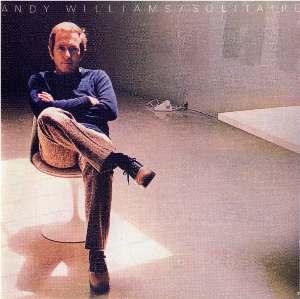
Melissa Manchester is an American singer, songwriter and actress. Since the 1970s, her songs have been carried by adult contemporary radio stations. She has also appeared on television, in films, and on stage.

Carole Bayer Sager is an American lyricist, singer, songwriter, and painter.

Endless Flight is the fourth album by English singer-songwriter Leo Sayer, which was released in 1976. It was released in the US and Canada by Warner Bros. Records and in the UK by Chrysalis Records.

Dynasty is the seventh studio album by American hard rock band Kiss, produced by Vini Poncia and released by Casablanca Records on May 23, 1979. It was the first time that the four original members of Kiss did not all perform together for the entire album.

"(You Make Me Feel Like) A Natural Woman" is a 1967 song by American soul singer Aretha Franklin released as a single by the Atlantic label. The words were written by Gerry Goffin from an idea by Atlantic producer Jerry Wexler, and the music was composed by Carole King. Written for Franklin, the record was a big hit reaching number 8 on the Billboard Hot 100, and became one of her signature songs. It made history on the UK Singles Chart a week after her death, finally becoming a hit almost 51 years after it was first released, entering at No. 79. Franklin also included a live recording on the album Aretha in Paris in 1968.

"Nobody Does It Better" is a power ballad and the theme song for the James Bond film The Spy Who Loved Me (1977). Composed by Marvin Hamlisch with lyrics by Carole Bayer Sager, the song was produced by Richard Perry and performed by Carly Simon. It was the first Bond theme song to be titled differently from the name of the film since Dr. No (1962), although the phrase "the spy who loved me" is included in the lyrics. The song was released as a single from the film's soundtrack album, and became a major worldwide hit.
Vincent "Vini" Poncia Jr. is an American musician, songwriter and record producer.

"Heartbreaker" is a song written by Carole Bayer Sager and David Wolfert, and recorded by American entertainer Dolly Parton. It was released in July 1978 as the first single and title track from the album Heartbreaker. The song topped the U.S. country singles chart, for three consecutive weeks, in mid-1978. "Heartbreaker" also peaked at #37 on the Billboard Hot 100 and #12 on the Easy Listening chart.

Melissa is the third album by Melissa Manchester, released on the Arista Records label in 1975. It reached #12 on the Billboard Albums chart on the strength of her first U.S. Top Ten hit "Midnight Blue" (#6). In 2001 the album was re-released.

Melissa Manchester is the self-titled and the eighth album release by singer-songwriter Melissa Manchester issued on Arista Records the first week of October 1979.

"You Should Hear How She Talks About You" is a song performed by American singer Melissa Manchester from her album Hey Ricky.

"Don't Cry Out Loud" is a song written in 1976 by Peter Allen with lyricist Carole Bayer Sager that is best known as a hit single for Melissa Manchester in the US and for Elkie Brooks in the UK.

"You're Moving Out Today" is a song written by Carole Bayer Sager, Bette Midler and Bruce Roberts. It became an international hit in 1977, in two versions.

Solitaire is the thirty-first studio album by American pop singer Andy Williams, released in the fall of 1973 by Columbia Records and was an attempt to move away from his formulaic series of recent releases that relied heavily on songs that other artists had made popular.

Wax Museum is the eighth studio album by Jay and the Americans released on February 28, 1970. The album went to #105 on the Billboard 200 chart, reached #68 on the Cashbox chart, and #71 in Canada. The album was the group's last charting album.

Come In from the Rain is an album by Captain & Tennille. It peaked at #18 on the Billboard 200 on May 27, 1977. It spent a total of 15 weeks on the chart.

"Making Love" is a 1982 song written by Burt Bacharach, Bruce Roberts, and Carole Bayer Sager to serve as the theme song for the film of the same name in which, as recorded by Roberta Flack with Bacharach/ Bayer Sager producing, it played under the closing credits: a Top 20 hit single for Flack, "Making Love" was included on the singer's 1982 album release I'm the One.

Feelings is an album by American pop singer Johnny Mathis that was released on October 20, 1975, by Columbia Records and strayed slightly from the practice of covering hits by other artists to include two new songs, both of which were written by Jerry Fuller: "Hurry Mother Nature" and "That's All She Wrote", which Ray Price took to number 34 on the Country chart the following spring.

Greatest Hits is the first compilation album released by American singer Melissa Manchester. It was issued by Arista Records in 1983, shortly after the release of Manchester's biggest hit, the new wave top 10 hit "You Should Hear How She Talks About You".

Cristy Lane Is the Name is a studio album by American country and Christian singer Cristy Lane. The album was released in February 1978 via LS Records and contained a total of 12 tracks. It was the second album issued in Lane's recording career and the first of many to be released on the LS label. The album featured seven singles releases, four of which became major hits on the North American country music charts between 1977 and 1978: "Let Me Down Easy", "Shake Me I Rattle", "I'm Gonna Love You Anyway" and "Penny Arcade". The album received positive reviews following its release.



















